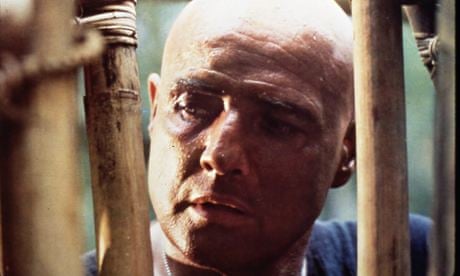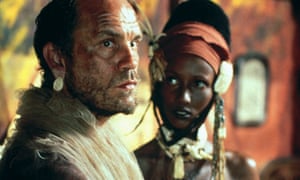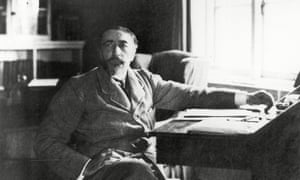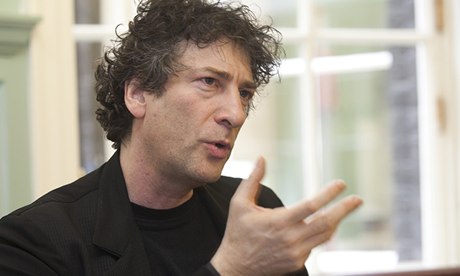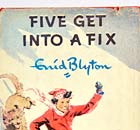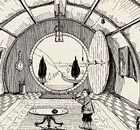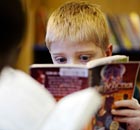In the wedding photograph my grandmother is not quite smiling. She is wearing white from top to toe — the only one to do so; the bride wore turquoise — and clutching a small glass of wine.
The snapshot was taken on the day my parents married in 1964. Gerdi was the mother of the groom. It was a bright summer’s day and London was swinging, but my grandmother looks guarded and anxious.
It must have been hard for her, surrounded by her ex-husband’s relatives. She had had an affair during the second world war and lost custody of my father as a consequence. Their relationship never fully recovered, though it was plain to see that she adored him. She rang him most nights in the middle of supper, throughout my childhood. We’d chorus: “I wonder who that could be?”
I’ve always been fascinated by my German Jewish grandmother. She was someone I loved deeply but never quite understood. I’d grown up hearing one side of the story: that she was weak and selfish, and had paid a heavy price for it. I wanted to know what might have led to the decisions she made. How could a loving mother walk out on her son?
I used the black-and-white photograph as the basis of a story, imagining the wedding day from her point of view. The voice I wrote in was feisty and spiky, a million miles away from my shy, awkward grandmother. But it felt good to examine things from her perspective. It felt like I was giving her a hearing.
It was only months later, as it grew into a novel, that I started to worry I’d been reckless. What I’d written was fiction, yet the story behind it was real. I was scared that it might expose my family when my instinct is always to protect them. The dirty linen one mustn’t wash in public was strewn across 300 pages.
All writers are thieves. They steal material wherever they can find it: a grumpy exchange overheard on the bus, the spotty shoulders of a long-ago boyfriend. But stealing stories from your nearest and dearest — that way danger lies. The road is littered with feuds and disinheritances. If you loved your family, why would you risk it?
My shelves are packed with books by writers who have taken that gamble, from AA Milne to Andrea Levy, Hanif Kureishi and Isabel Allende. Some reimagined a relative’s life, others used their offspring as a springboard to a whole new world. There’s an emotional truth at the heart of these books that attracts me.
I have always wanted to write a novel. I had my first go when I was nine. It was four sheets of paper sewn together with crooked stitches. The title: When the Dead Cock Crowed. I don’t recall that much about the plot (it had something to do with time travel and poultry) but I remember the excitement of filling the pages with words, my vice-like grip on the felt-tip pen as I wrote in giant capitals “THE END”.
That was the feeling I sought to recapture aged 25, when I tried to write “chick-lit”. It was 1997 and Bridget Jones was all the rage. I’d just come back from teaching English in Turkey and was unsure what to do with my life. It seemed I’d found the answer as I tapped away on my Canon Starwriter. Research? Who needs it. Plot? Just keep writing. I was propelled by the arrogance of youth.
I hit 50,000 words before I ran out of steam. When I read the manuscript back, I was horrified by what I’d produced. First drafts are supposed to be rough, but this one was truly a stinker. I thank God that Turkish Delight never made it to the bookshops.
The experience taught me just how difficult it is to write a novel and that making characters and events sound plausible is harder still. If I was going to devote that time and effort again, it had to be for something I believed in.
I wanted an authentic tale, one that I felt qualified to tell. It took me until my late thirties to find what I was looking for.
Right from the start my novel Bitter was a murky mix of fact and fiction. The protagonist had my grandmother’s name and the same loveless childhood in Germany. She lived in the same smart Swiss Cottage flat I remembered from countless visits. Her favourite restaurant, Luigi’s off Finchley Road, was one I had been to with Gerdi.
But as I began to write, I realised I knew very little beyond the headline facts. My grandmother had been dead for almost a decade. In life, she rarely talked about the past and my father had been tucked away at boarding school.
At first it felt strange to be making things up — it reminded me of playing with Barbie dolls — but the more imaginative leaps I made, the more natural it became. I wrote instinctively, mixing anecdotes with half-truths. I changed the protagonist’s name to Gilda (it had to have the same feeling as Gerdi) and that one small change was like cutting a tether; she took on a life of her own.
Ambition is a peculiar thing: mine seemed to grow along with my word count. When I finally got to the end of the first draft, I thought I had something that could work. But along with that came my first serious doubts. I’d distorted the facts beyond recognition. My protagonist was an unlikeable woman with a life spinning out of control. Yet aspects of the story still belonged to my grandmother. I shuddered to think what she’d have made of it.
I wasn’t the only one struggling to distinguish the truth. Shortly after I’d shown her the first draft, my mother recounted an anecdote about Gerdi and I realised it had come from the book. I told her I had made the story up, but she insisted it had actually happened. Perhaps it did. Perhaps I’d heard it at some point. Neither of us has any way of knowing.
I returned to the manuscript and deleted several sections of it. I wrote the word “compassion” on a Post-it note and stuck it to my screen. The second draft was kinder, the characters more nuanced, the ending more hopeful. I added another layer of plot to push it further into fiction.
As I set about the long process of trying to find an agent, I wondered whether to mention the family link. In the end I did. I wanted to show why I was the right person to write this particular story. And also, if I’m honest, I hoped it might be a selling point.
When Lionel Shriver wrote her fifth novel, A Perfectly Good Family, she thought it might cause “a little aggro”. In fact, her brother refused to speak to her for two years. Writing more than a decade after the book’s publication, she warned: “Anyone considering writing fiction or a memoir that brushes even slightly against real-life family should take heed: think twice.”
This is good advice, clearly. Even the most sensitive writers can cause unintended harm. AA Milne’s son Christopher was badly bullied at boarding school for his role in Winnie-the-Pooh. Isabel Allende’s relatives didn’t speak to her for several years after recognising themselves in her debut House of the Spirits.
Some authors see such repercussions as part of the job description. Hanif Kureishi, whose 2003 film The Mother caused a serious rift with his sister, says his only regrets “are to do with quality”. Rachel Cusk, who was vilified for writing about motherhood and the breakdown of her marriage, has said “If you really care what people think of you . . . you’re never going to be a writer.”
Yet most of the authors I know agonise about the possibility of hurting loved ones. A friend scrapped an entire manuscript because she was worried what her children would one day make of it. Another changed a crucial death scene because it was too close to what had happened to a relative.
Andrea Levy shows that family stories need not be a source of conflict. Her novel Small Island came out of her father’s emigration to Britain from Jamaica on the Empire Windrush and her mother’s arrival six months later. The two main characters, Gilbert and Hortense, are named after her parents. In a piece for The Guardian, she said: “Small Island was a joy to write and those characters will stay with me forever. It became a work of fiction, but for me it still remains something of a family history too.”
I asked my parents’ permission to write about Gerdi early on and both were supportive. When I speak to my mother now, she says she wasn’t worried at all. As a retired psychoanalyst, she knows the importance of telling stories. She trusted that I was writing from a place of love. I wasn’t trying to settle any scores.
In fact, she rather wished that I was writing about her parents. She saw it as a way to somehow bring them back to life. I understand that. For a while it did feel like Gerdi was more present. I thought about her a great deal. We talked about her often at the dinner table.
My father, it seemed to me, was not hugely interested. His childhood years were unhappy and he had no wish to return to them. But, aged 80, he had just completed a Masters in creative writing and I thought he understood where I was coming from. I spoke to him a bit about his mum. Neither of us expected my novel would be published. I showed him some passages along the way but he didn’t want to read it until it was a “proper book”.
When I spoke to him for this article, he admits he’d had concerns about what I was doing. “I knew you didn’t know enough to write a decent memoir and I was worried you were going down the Hilary Mantel ‘faction’ route. I didn’t like the idea of you making things up to fill the gaps.”
Could I have written Bitter without my parents’ permission? Honestly, I don’t think so. It wasn’t just my grandmother’s archives I raided. The book is stuffed with family memories: my mother’s school dinners in the 1950s, my brother as a child learning chess with my dad, my nephew running as fast as he can through the autumn leaves, me hobbling across the stones to paddle in the sea at Brighton.
I was nervous when I finally handed Dad a hardback copy. At first he said he was enjoying it. But Mum told me later that he was finding it quite upsetting. She thought chapters that touched on his early life had reminded him of a time he would rather forget.
I rang him and he said it had captured something about his mother. It wasn’t Gerdi and yet somehow it was her — not the words, perhaps, but the underlying sadness. It was unsettling to see this period through the eyes of his daughter. I said he should stop reading it and he has.
He’s since explained that he could never quite see it as fiction. To him Gilda is an imposter, pretending to be his mum. When he heard the actress in the audio version had a German accent, his response was immediate. “No. That’s wrong. Mum lost most of her accent.”
I don’t doubt how proud he is, though. He took me out to lunch on publication day. As I got up to go to the ladies room, I saw him lean over to the strangers at the table next to us. Pointing in my direction, he said: “That’s my clever daughter.”
Both my parents came to the launch party and my father thoroughly enjoyed himself. One of my friends mentioned a scene from the book that revolved around a small boy and some coffee cups. Dad told her: “That was me, you know.”
